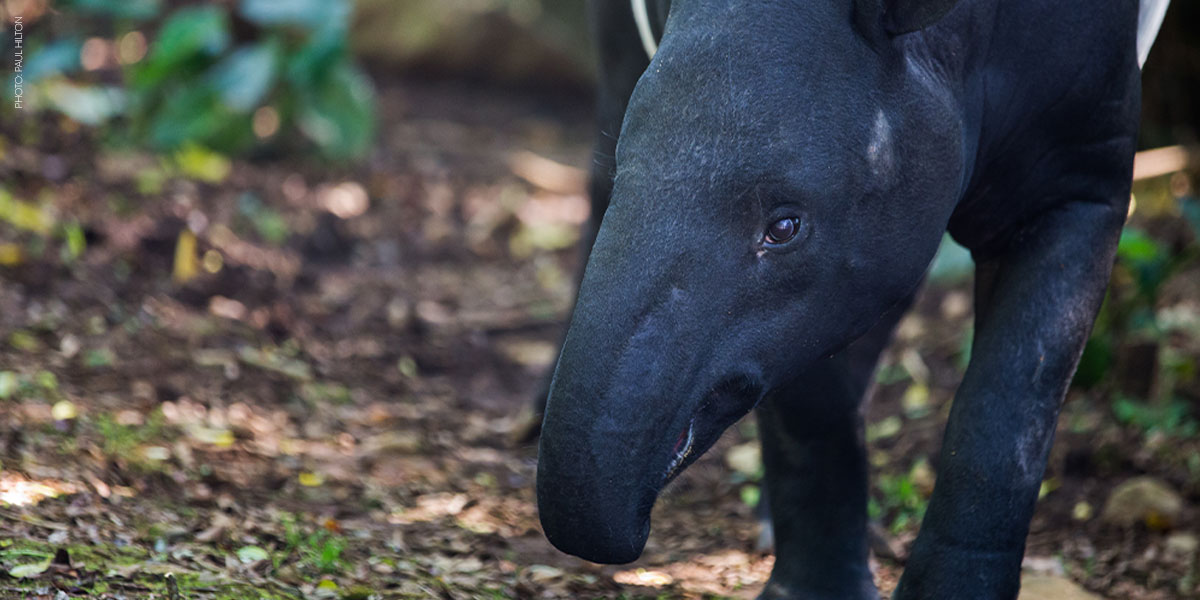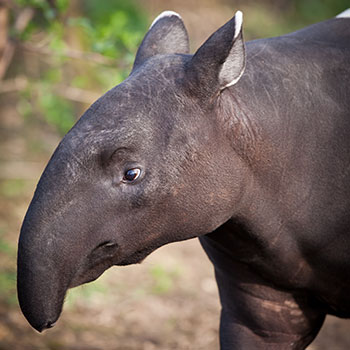Malayan Tapir
(Tapirus indicus)

Forests, grassland, and wetlands of the Indonesian island of Sumatra, Burma, Thailand, and Malaysia.
Nope, I’m NOT a rhino - no horn! You can find me by the nearest watering hole using my elephant-like snout to nom nom all the fruits and leaves.
About me
I can live to the human equivalent of a quarter-life crisis (25-30 years), but few of us have that chance these days. My Tapir friends and I are endangered because humans are eating junk food made with Conflict Palm Oil that is causing our rainforest home to be destroyed.
The center of my universe is the watering hole, and I follow the footsteps and tunnel-like path I’ve worn through the brush with other tapirs. Why? It’s hot! I like to play it cooler by the watering hole, and use my elephant-like short trunk — that’s also my upper lip btw — to eat my favorite herbivore diet staples: grass, vegetation, and fruit.

Did you know?
That we have black and white stripes and spots as babies? Like a baby zebra mixed with a baby rhino, but make it Tapir.
That we’re the largest of the five tapir species, and the only one native to Asia?
That we might look like pigs with a weird nose, but we’re actually related to rhinos and horses? In Indonesia, they call us “batak” even, which means “rhino”.
That we might look a bit dense and heavy, but we’re actually great swimmers? Don’t judge a book by its cover, this book knows its way around a watering hole.
Forests are essential to our survival and the survival or millions of species. They are also our best defense against climate change. And yet corporations are destroying them for short term profit.
Why I want to Keep Forests Standing
There are only 2,500 adult Malayan Tapirs left in the wild. The main reason: habitat destruction due to deforestation for agriculture, mining, commercial development projects, and also hunting and poaching. The land we call home is being taken away by corporations who choose profits over our lives, and the good of the planet. We’re becoming isolated in forest patches so we can’t find a match to produce healthy babies and maintain our population to survive.



 Forests, grassland, and wetlands of the Indonesian island of Sumatra, Burma, Thailand, and Malaysia.
Forests, grassland, and wetlands of the Indonesian island of Sumatra, Burma, Thailand, and Malaysia.